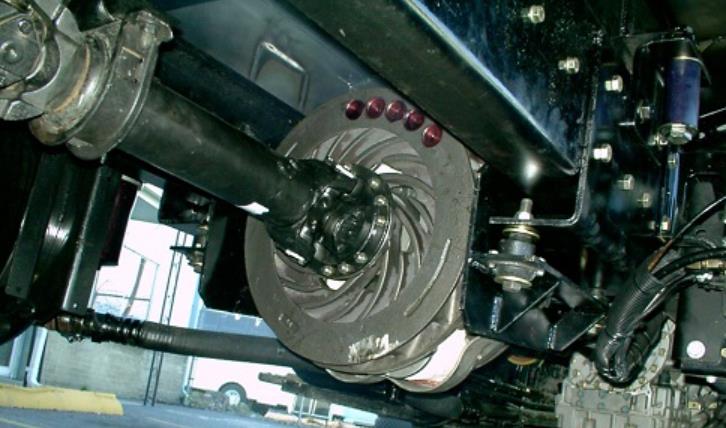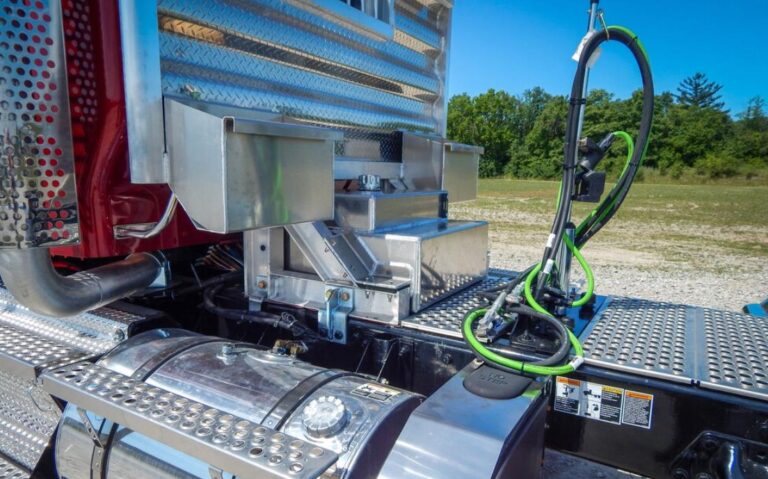What Is Outlaw Trucking? Everything You Need To Know
This article will explain everything about What Is Outlaw Trucking? Outlaw trucking represents a unique, often misunderstood segment of the trucking industry. This term is frequently used to describe truckers or trucking companies that operate outside the regulatory frameworks established by transportation authorities. It’s essential to understand what outlaw trucking is, not just for those in the industry but also for the general public, as it impacts road safety and economic dynamics.
Key Takeaways
- Understanding the concept and implications of outlaw trucking.
- Identifying the differences between legal and outlaw trucking practices.
- Recognizing the risks and challenges associated with this sector.
- Discussing the impact of outlaw trucking on the transportation industry.
What Is Outlaw Trucking?
Outlaw trucking refers to practices within the trucking industry where truckers or companies operate outside of legal and regulatory frameworks. This includes overloading trucks, falsifying logbooks, avoiding safety checks, and not adhering to driving hours limits, often prioritizing speed and profits over compliance and safety.

Understanding Outlaw Trucking
Definition and Characteristics
Outlaw trucking refers to practices in the trucking industry where operators intentionally bypass safety regulations, weight limits, and hours-of-service rules. This behavior includes overloading trucks, falsifying logbooks, and avoiding safety checks. Outlaw truckers often prioritize delivery speed over compliance with legal standards, leading to potential road safety hazards.
- Key Characteristics:
- Non-compliance with safety regulations.
- Falsification of documentation.
- Overloading vehicles.
Historical Context
The roots of outlaw trucking can be traced back to the early days of trucking, where regulations were minimal, and the focus was on speedy delivery. Over the years, as laws and regulations tightened, some truckers chose to operate outside these legal boundaries to maintain their competitive edge or maximize profits.
- Historical Evolution:
- Emergence from less regulated eras.
- Adaptation to increasing industry regulations.
Legal vs. Outlaw Trucking Practices
Compliance with Regulations
In contrast to outlaw truckers, legal trucking operations strictly adhere to all regulations set by authorities like the Department of Transportation (DOT) in the United States. These regulations include limits on driving hours, regular vehicle maintenance, and compliance with weight restrictions.
- Legal Trucking Practices:
- Adherence to hours-of-service regulations.
- Regular vehicle maintenance and safety checks.
- Compliance with weight restrictions.
The Risks of Non-Compliance
Outlaw trucking poses significant risks, not just to the truckers but also to other road users. Overloaded trucks can lead to accidents, while exhausted drivers increase the likelihood of crashes. Non-compliance can also result in heavy fines and legal consequences for both drivers and trucking companies.
- Risks Associated with Outlaw Trucking:
- Increased accident rates.
- Legal and financial penalties.
- Damage to reputation and loss of business.
The Impact of Outlaw Trucking on the Industry

Economic Implications
Outlaw trucking can unfairly skew the competitive landscape by allowing some operators to cut corners and reduce operational costs. This unfair advantage can harm law-abiding businesses and distort market dynamics.
- Economic Challenges:
- Unfair competitive advantages.
- Impact on law-abiding businesses.
Safety and Environmental Concerns
The disregard for safety regulations and vehicle maintenance standards in outlaw trucking directly impacts road safety. Additionally, non-compliance with environmental regulations can lead to increased pollution and environmental damage.
- Safety and Environmental Issues:
- Higher risks of road accidents.
- Environmental pollution due to non-compliance.
Addressing the Issue of Outlaw Trucking
Regulatory Measures
Governments and transportation authorities implement various measures to curb outlaw trucking, such as stricter enforcement of existing regulations, increased road checks, and enhanced penalties for non-compliance.
- Government Actions:
- Stricter law enforcement.
- Increased inspections and penalties.
Industry Initiatives
The trucking industry itself, through associations and collective efforts, also plays a crucial role in addressing outlaw trucking. Initiatives include promoting awareness, advocating for fair practices, and supporting technological advancements that ensure compliance.
- Industry Efforts:
- Promoting ethical practices.
- Technological solutions for compliance.
The Future of Outlaw Trucking
Technological Advancements
Advancements in technology, like electronic logging devices (ELDs) and GPS tracking, are making it increasingly difficult for outlaw truckers to circumvent regulations. These technologies ensure better compliance and reduce the likelihood of illegal practices.
- Technological Impact:
- Enhanced monitoring and compliance.
- Reduction in logbook falsification.
Trends and Predictions
As regulations continue to tighten and technology advances, the prevalence of outlaw trucking is expected to decrease. However, it remains crucial to remain vigilant and proactive in addressing this issue to ensure the safety and integrity of the trucking industry.
- Future Outlook:
- Decrease in outlaw trucking practices.
- Continued emphasis on safety and compliance.
What Are the Common Risks Associated with Unregulated Trucking?

Understanding the Dangers
Unregulated trucking, often closely related to outlaw trucking, poses several risks that impact both the trucking industry and public safety. The most immediate danger lies in compromised road safety.
When trucking companies or individual drivers neglect regulations, particularly those related to vehicle weight limits and driver fatigue, the likelihood of accidents increases significantly.
These accidents not only endanger the lives of truck drivers but also other road users. Overloaded trucks, for example, have a higher risk of mechanical failures like brake system breakdowns or tire blowouts, leading to potentially catastrophic road incidents.
Economic and Legal Consequences
Beyond safety concerns, unregulated trucking practices can lead to severe economic and legal repercussions. Companies that flout regulations might initially experience cost savings and increased profits.
However, these short-term gains are often overshadowed by long-term consequences, including hefty fines and legal sanctions. This not only affects the financial stability of the businesses involved but also tarnishes their reputation in the industry.
Moreover, unregulated practices create an uneven playing field, where compliant companies may find themselves at a competitive disadvantage, ultimately harming the industry’s overall health and sustainability.
How Does Technology Combat Illegal Trucking Practices?
Role of Modern Technology
In the fight against practices akin to outlaw trucking, technology plays a crucial role. The introduction of Electronic Logging Devices (ELDs) has been pivotal in ensuring compliance with hours-of-service regulations.
These devices automatically record driving time, making it difficult for drivers to exceed legal limits without detection. GPS tracking systems also add a layer of accountability, allowing fleet managers to monitor vehicle locations and ensure that routes and schedules are adhered to.
These technological advancements not only improve compliance but also enhance overall operational efficiency.
Future Technological Innovations
Looking ahead, emerging technologies promise further strides in combating illegal trucking practices. Advanced telematics systems offer real-time data on vehicle performance, enabling preemptive maintenance and reducing the risk of mechanical failures.
AI and machine learning algorithms are being developed to detect patterns indicative of non-compliance or risky behavior.
Additionally, the integration of blockchain technology could revolutionize record-keeping in the trucking industry, making it almost impossible to falsify logs or other important documents.
As technology continues to evolve, its role in ensuring safety and compliance in trucking will only become more significant.
What is the Role of Government in Regulating the Trucking Industry?

Government Regulations and Enforcement
The government plays a vital role in regulating the trucking industry to prevent practices similar to outlaw trucking. Regulatory bodies, such as the Department of Transportation in the United States, establish rules concerning vehicle safety standards, driver working hours, and emissions, among other aspects.
These regulations are designed to ensure not just the safety of truck drivers, but also that of the general public. The government also enforces these regulations through routine inspections, road checkpoints, and audits. Non-compliance can result in penalties, including fines, license suspensions, or even criminal charges in severe cases.
Challenges and Criticisms
While government intervention is essential for maintaining industry standards, it often faces challenges and criticisms. One of the main challenges is ensuring that regulations keep pace with industry changes and technological advancements.
There is also a delicate balance to be struck between enforcing regulations and not overburdening trucking companies, especially smaller operators, with excessive regulatory demands.
Critics often argue that some regulations are too stringent or disconnected from the realities of trucking operations, calling for a more collaborative approach between the government and industry stakeholders to develop practical and effective regulatory frameworks.
What Are the Environmental Impacts of Non-Compliant Trucking?
Contribution to Environmental Degradation
Non-compliant trucking, closely associated with outlaw trucking practices, significantly impacts the environment. One of the primary concerns is the emission of greenhouse gases and pollutants.
Trucks that are overloaded or poorly maintained often consume more fuel and emit higher levels of carbon dioxide, nitrogen oxides, and particulate matter. These emissions contribute to air pollution and climate change, posing health risks to the population and harming ecosystems.
Moreover, non-compliance with environmental regulations, such as those governing vehicle emissions and waste disposal, exacerbates the environmental footprint of the trucking industry.
The Need for Sustainable Practices
There is an increasing awareness and demand for sustainable practices in the trucking industry. This includes transitioning to cleaner fuel options, such as electric or hydrogen-powered trucks, and implementing more efficient route planning to reduce fuel consumption and emissions.
Additionally, regular maintenance and timely upgrades of truck fleets are essential to ensure they meet environmental standards. The industry, along with governmental bodies, is also exploring policies and incentives to encourage eco-friendly practices and reduce the environmental impact of trucking.
How Can Trucking Companies Ensure Compliance and Safety?

Implementing Compliance Strategies
For trucking companies, ensuring compliance with regulations is crucial for safe and lawful operations. This begins with thorough training for drivers on safety practices and regulatory requirements.
Companies should also invest in compliance management systems that help monitor and manage various aspects of their operations, such as driver hours, vehicle maintenance, and load limits.
Regular internal audits and inspections can also help identify potential areas of non-compliance and allow for corrective action before external inspections or incidents occur.
Fostering a Culture of Safety
Beyond mere compliance with regulations, cultivating a culture of safety within a trucking company is vital. This involves prioritizing safety in all aspects of operation, from management decisions to daily practices on the road.
Encouraging open communication about safety concerns and actively involving employees in safety planning and decision-making can lead to a more engaged and safety-conscious workforce.
Additionally, recognizing and rewarding compliance and safe behavior can reinforce the importance of these values within the company.
What Are the Challenges Facing Small Trucking Businesses?
Small trucking businesses often face unique challenges, particularly in navigating regulatory landscapes and managing financial constraints.
Compliance with industry regulations can be especially daunting for smaller operators, who may lack the resources and infrastructure of larger companies.
This includes the cost of implementing and maintaining compliance technologies, such as ELDs, and the administrative burden of keeping up with changing regulations.
Financial challenges also extend to operational costs, such as fuel, maintenance, and insurance, which can be proportionally higher for smaller fleets.
Strategies for Survival and Growth
Despite these challenges, there are strategies that small trucking businesses can employ to survive and grow. Building strong relationships with clients and focusing on niche markets can provide a competitive edge.
Leveraging technology to improve efficiency and reduce costs is also crucial. This might include adopting fleet management software or optimizing routes for fuel efficiency.
Additionally, small businesses can benefit from joining industry associations, which can provide support, resources, and advocacy on regulatory matters. Collaborating with other small operators to share resources and knowledge can also be a valuable strategy.
Conclusion
In conclusion, understanding and addressing outlaw trucking is vital for the safety, integrity, and fairness of the trucking industry. Through a combination of regulatory measures, industry initiatives, and technological advancements, the challenges posed by outlaw trucking can be effectively managed. This ensures not only the safety of the roads but also the health of the transportation industry as a whole.
Top FAQ’s
How can truck drivers maintain compliance with regulations while on long hauls?
Truck drivers can maintain compliance on long hauls by closely adhering to HOS regulations, using ELDs to track their driving time, taking the required rest breaks, and planning routes efficiently. Staying informed about any changes in regulations and maintaining good communication with their dispatch and management teams are also crucial for ensuring ongoing compliance.
What role do trucking associations play in the industry?
Trucking associations play a pivotal role in representing the interests of trucking companies and drivers. They provide resources and support, advocate for favorable policies and regulations, offer training and certification programs, and help set industry standards. They also facilitate communication and collaboration within the industry.
Are there specific regulations for hazardous material transportation?
Yes, the transportation of hazardous materials (hazmat) is highly regulated due to the potential risks involved. Regulations typically cover packaging, labeling, documentation, and driver training. These regulations are stringent to pr
What is the impact of trucking on the environment, and how is it regulated?
Trucking impacts the environment mainly through emissions that contribute to air pollution and climate change. Regulations often focus on reducing these emissions by setting standards for truck fuel efficiency and emissions levels. Trucking companies are increasingly adopting more eco-friendly practices, such as using cleaner fuels, improving vehicle maintenance, and optimizing routes for efficiency.

Welcome to the exhilarating world of Matt Rex, a professional car racer turned renowned vehicle enthusiast. Immerse yourself in his captivating blog as he shares heart-pounding adventures, expert reviews, and valuable insights on cars, trucks, jets, and more. Fuel your passion for speed and discover the beauty of vehicles through Matt’s engaging stories and meticulous expertise. Join the ever-growing community of enthusiasts who find inspiration and expert advice in Matt Rex’s blog—a digital hub where the thrill of speed meets the pursuit of knowledge.







